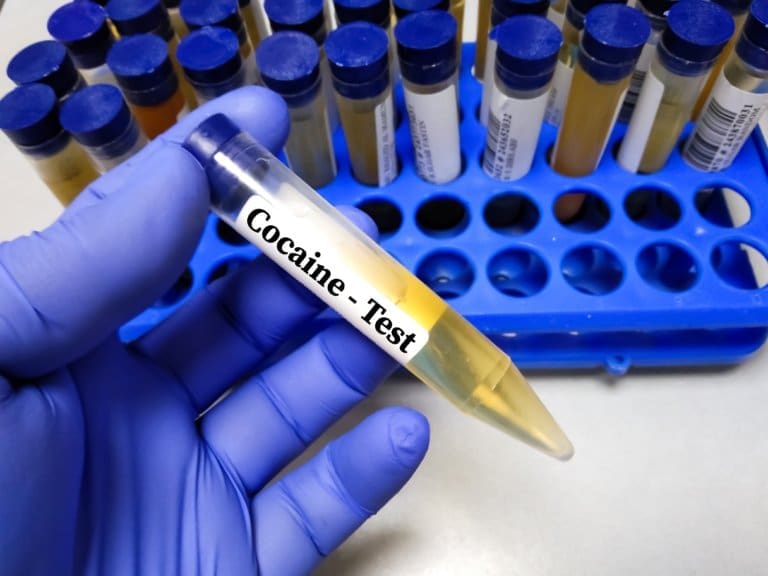How Long Is Cocaine Detectable In Your System?
- November 28, 2022
- Prosperity Haven
- Addiction Treatment

Whether you’re worried about the long-term effects of cocaine use or the results of a workplace drug test, you may want to know how long cocaine remains in your system. Though cocaine is a popular party drug, it is far from harmless. In fact, it is highly addictive and has ruined and even ended thousands of lives. For this reason, it is vital to understand if you or someone you love is struggling with cocaine addiction. It is also important to know how cocaine affects the body, how it can be detected, and how long it stays in your system.
When it comes to cocaine addiction and detection, people often come to Prosperity Haven with a lot of important questions. For example, what are the lasting health effects of regular cocaine use? Can I get addicted to cocaine after just one time? Finally, how long is cocaine detectable in the human body?
In today’s guide, we will answer all of these questions and more. Additionally, if you or a loved one is currently fighting cocaine addiction, we are here to remind you that there is always hope. Feel free to reach out to our experts at Prosperity Haven for more information and read on to learn more about cocaine detectability.
Adverse Effects of Cocaine Use
Though cocaine used to be prescribed as a medication nearly a century ago, it is now used as a recreational drug. Abusers desire cocaine for the short-term burst of energy and sense of euphoria it produces. However, these brief effects come at a high cost. You can get addicted to cocaine after just one experience with the drug, especially since the short-lived effects encourage drug binges.
Moreover, repeated cocaine abuse can seriously damage the reward pathways in the brain. In other words, your brain can lose its ability to “feel good” about normal things in life, like a promotion at work or a new romantic relationship. Instead, your brain gets addicted to the euphoria produced by cocaine and becomes desensitized to natural causes of euphoria. This addictive cycle can last for months or years, depending on how often you use cocaine.
In addition to its effect on the brain, cocaine can also have a profoundly negative effect on the body. After years, months, weeks, or even days of continual use, your body will build up a tolerance to cocaine. This means you will need to use more and more of the drug to reach your desired effects. Naturally, this greatly increases the risk of overdose. To make matters worse, higher amounts of cocaine can lead to strokes, seizures, anxiety, hallucinations, and potentially even psychosis.
Factors Affecting The Length Of Time Cocaine Is In Your System
There are actually dozens of factors that can affect how long cocaine remains in your system. Here are just a few of the most important factors to consider:
- Frequency of Use – If you use cocaine regularly, it will take longer to completely leave your system. Alternatively, if you have just used cocaine one or two times, it will be able to leave your body much more quickly.
- Amount of Last Usage – The amount of cocaine used will greatly affect how long it stays in your system. For example, if someone snorts a single line of cocaine, it will leave the body relatively quickly. On the other hand, if a person goes on a cocaine “binge,” repeatedly using high amounts of the drug over a very short period of time, it will remain detectable in the system for longer.
- Intake Method – The intake method can have a minor effect on how long cocaine remains in the system. The most common methods are snorting, smoking, injecting, and oral ingestion.
- Detection Method – While the testing or detection method does not change how long cocaine stays in the body, it does affect how long it remains detectable. Generally speaking, cocaine does not remain detectable in the blood or saliva for long, but it does remain detectable in hair samples for extended periods of time.
How Cocaine Is Detected In The Body
There are four main ways to detect cocaine in the body. These involve testing blood, saliva (sometimes known as a lick test), urine, or hair. Cocaine has a half-life of just one hour, which means that it takes the body about one hour to eliminate half of the cocaine from the bloodstream. However, this does not mean that it takes two hours to eliminate all cocaine from the bloodstream or the rest of the body. In fact, traces of cocaine typically last in the body for at least 48 hours from the last usage. Depending on the detection method, it could remain traceable for months or even years.
Additionally, cocaine usage can be detected in a mother by testing breastmilk or a newborn’s meconium (the first bowel movement). Consequently, if a pregnant person uses cocaine prior to giving birth, the newborn’s first bowel movement will contain traces of the drug for up to 3 days. Alternatively, if a mother uses cocaine after giving birth, the cocaine will remain present in the breastmilk and, if the newborn is breastfeeding, potentially in the baby’s feces.
How Long Does Cocaine Stay In Urine?
For one-time cocaine use, the drug remains detectable in pee for up to three days. However, heavy users may find that cocaine can stay in their urine for up to a week. How the cocaine is used could also impact how long it stays in urine samples.
How Long Does Cocaine Stay In Blood?
Cocaine typically stays in the bloodstream for up to 2 days. This remains true for first-time users and regular users, though regular users will still likely have it traceable for a little longer. This timeframe could also be affected by the intake method, though this would only change the window by a few hours.
How Long Does Cocaine Stay In Saliva?
Cocaine stays in saliva for up to 2 days. Again, there is little difference based on the amount or frequency of usage. However, the intake method could play a minor role in lengthening or shortening the detection period.
How Long Does Cocaine Stay In Hair?
Cocaine can stay in hair follicles for a very long time. Depending on how much and how often cocaine is consumed, it could remain in the hair for anywhere from 1 or 2 months to several years. Since cocaine stays in hair follicles for so long, the intake method has virtually no effect on its detectability.
Getting Help For A Cocaine Addiction
Dealing with cocaine addiction is anything but easy. This is true whether you are dealing with your own addiction or trying to help a loved one recover. In either case, you should always reach out to professionals for help as soon as possible.
Fortunately, Prosperity Haven has both the facilities and the expertise to provide high-quality cocaine addiction treatment. Our residential drug rehab centers are designed to be calming environments that are free of judgment. Additionally, we offer all of the same services you could get at a traditional inpatient treatment center. Prosperity Haven also goes the extra mile to ensure long-term recovery by offering both one-on-one and group therapy. All you have to do is make a call or visit one of our clinics to take the first step toward recovery.
Is someone you know showing signs of cocaine addiction? Do you believe that treatment for cocaine addiction is the best solution to reach recovery? If so, feel free to contact the experts at Prosperity Haven to learn more about drug rehab for cocaine addiction.
YOUR NEW BEGINNING
STARTS HERE
Take the First Step and Reach Out Today






